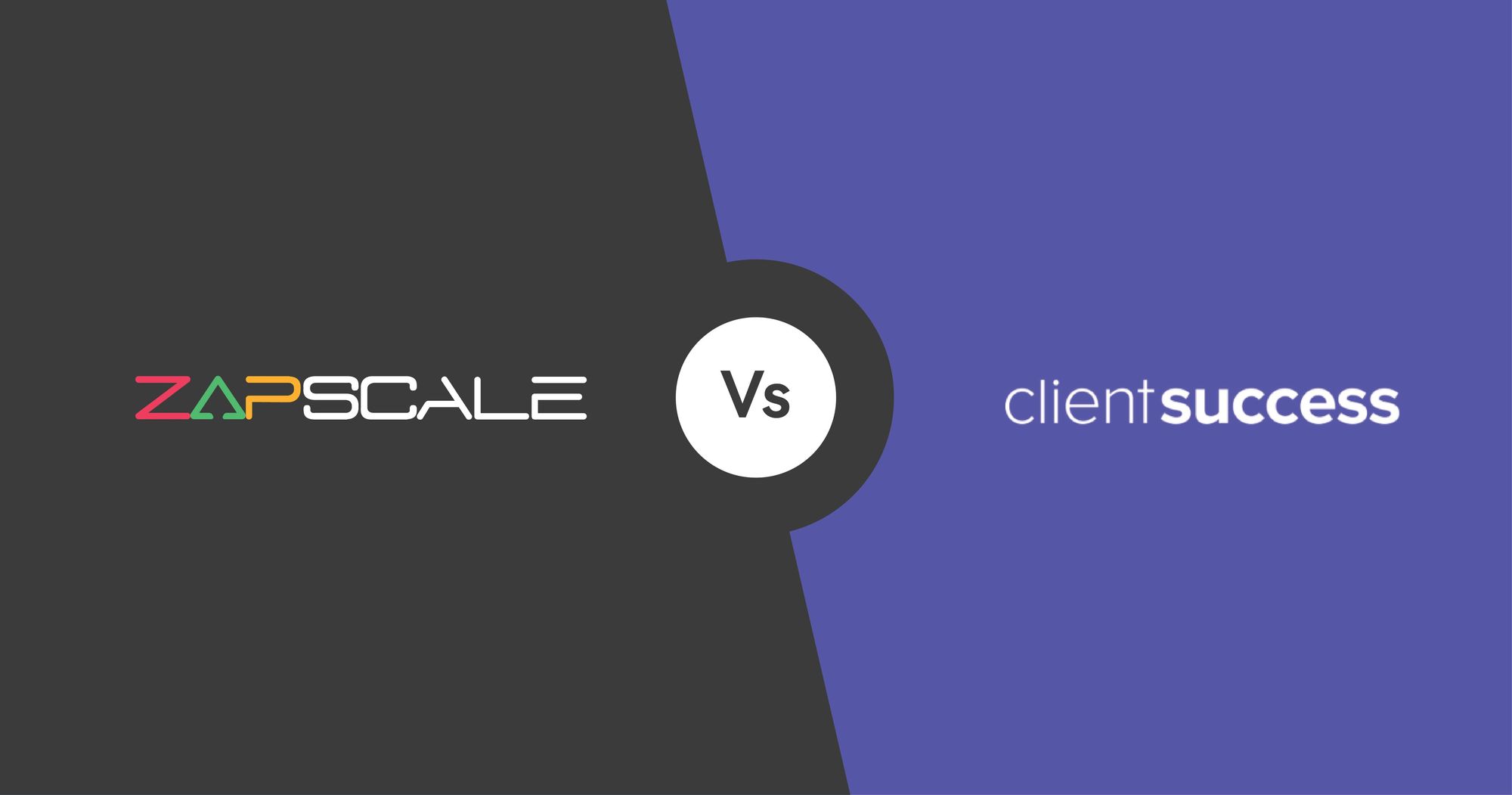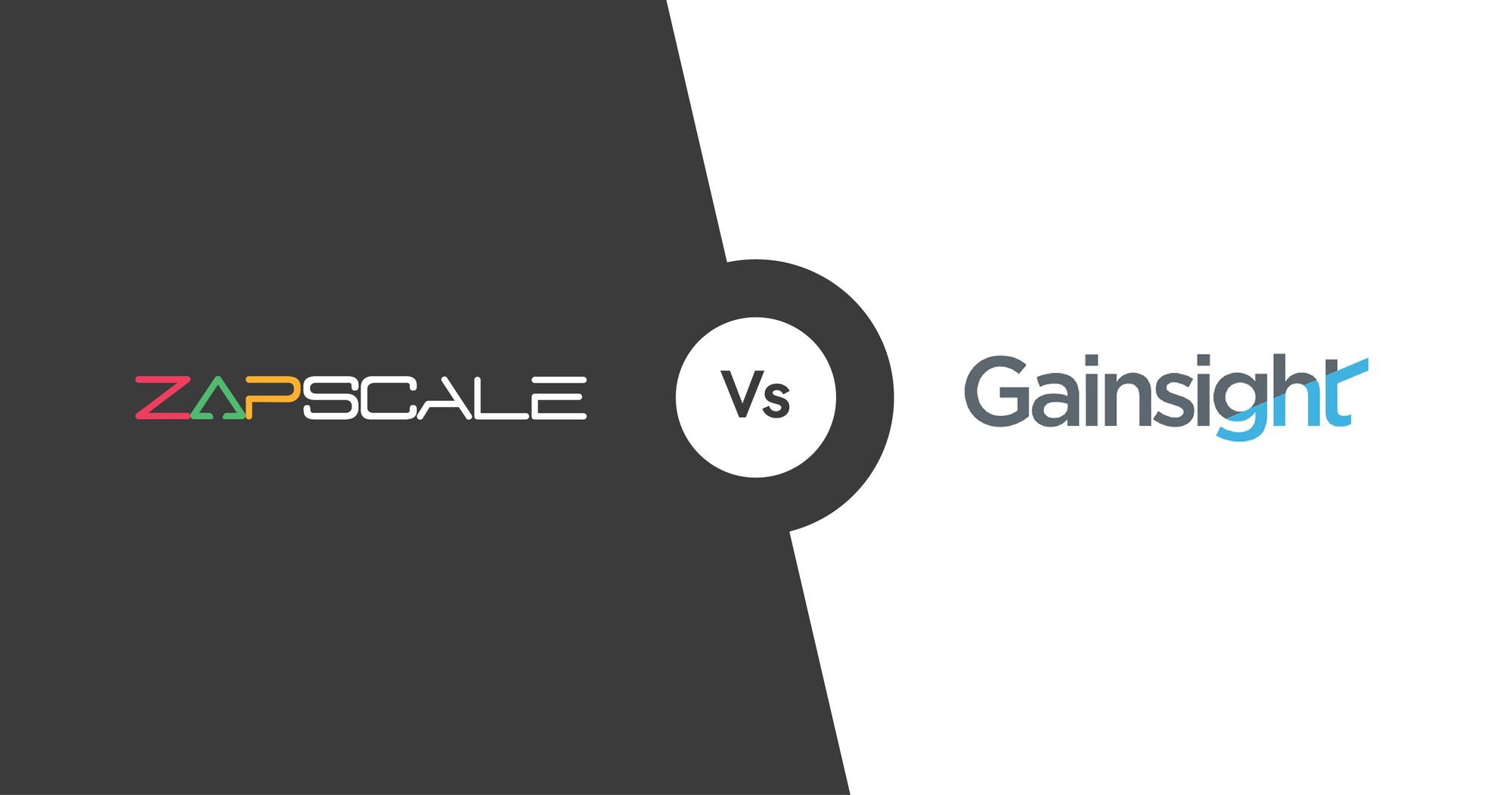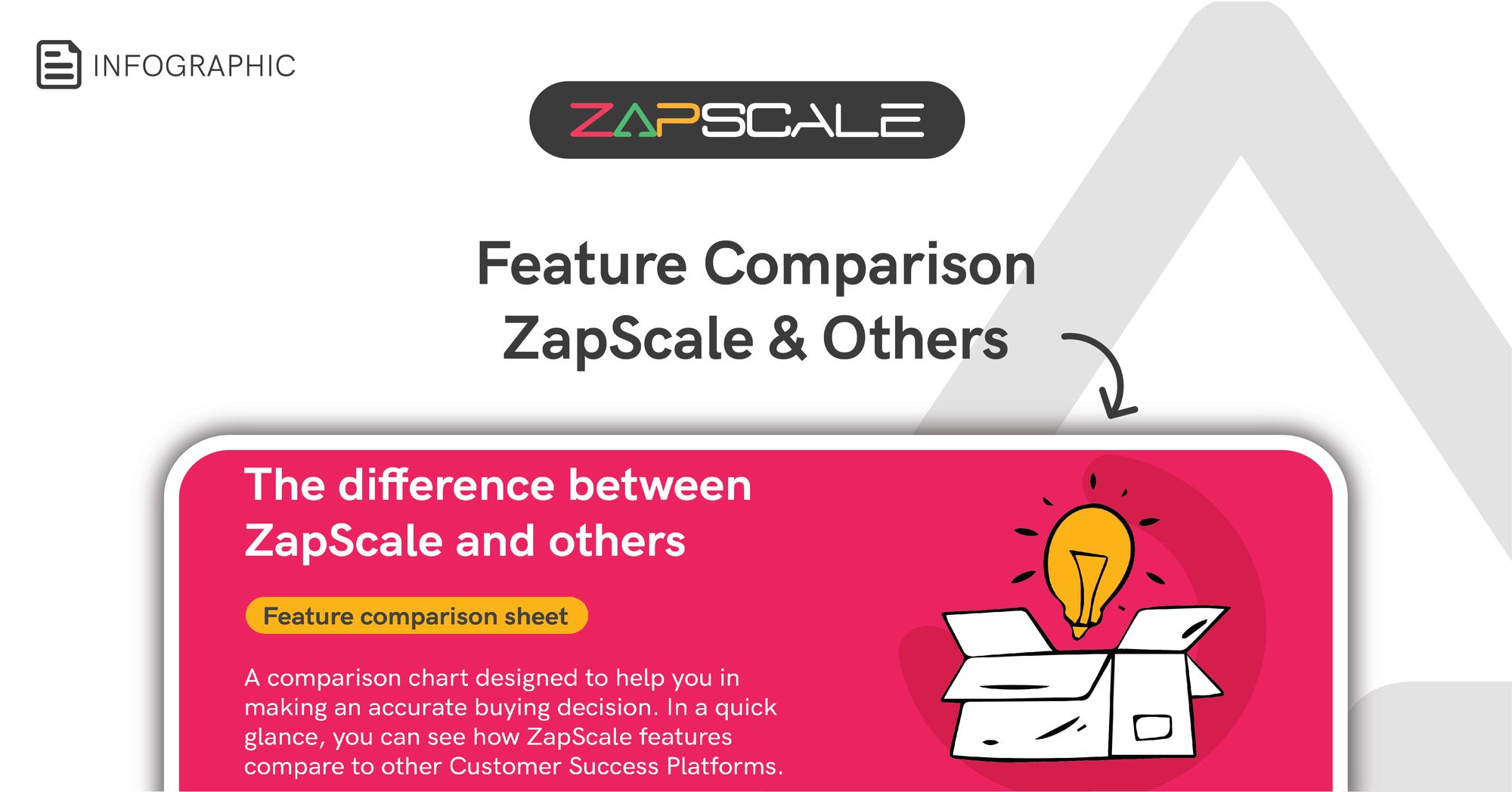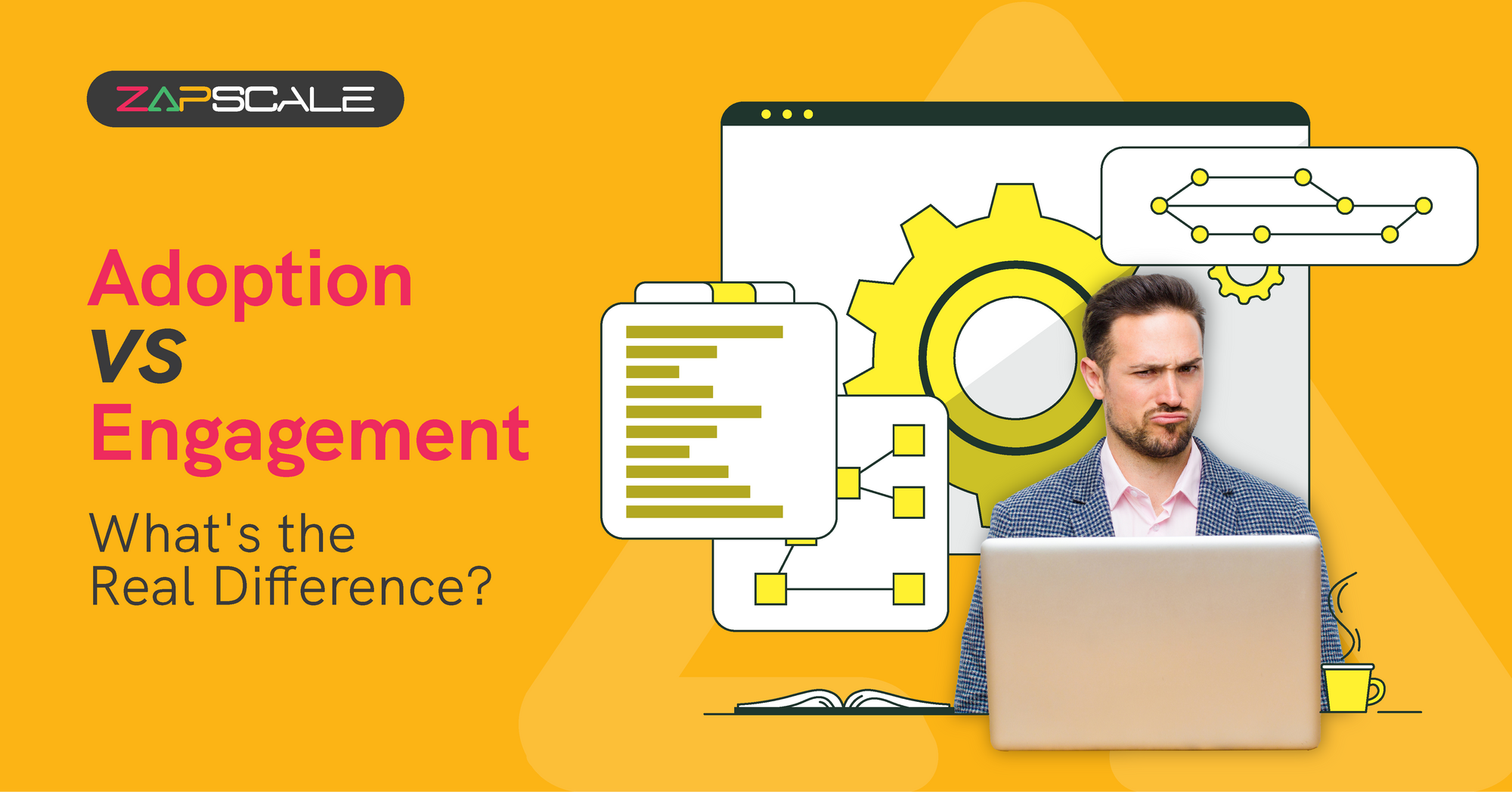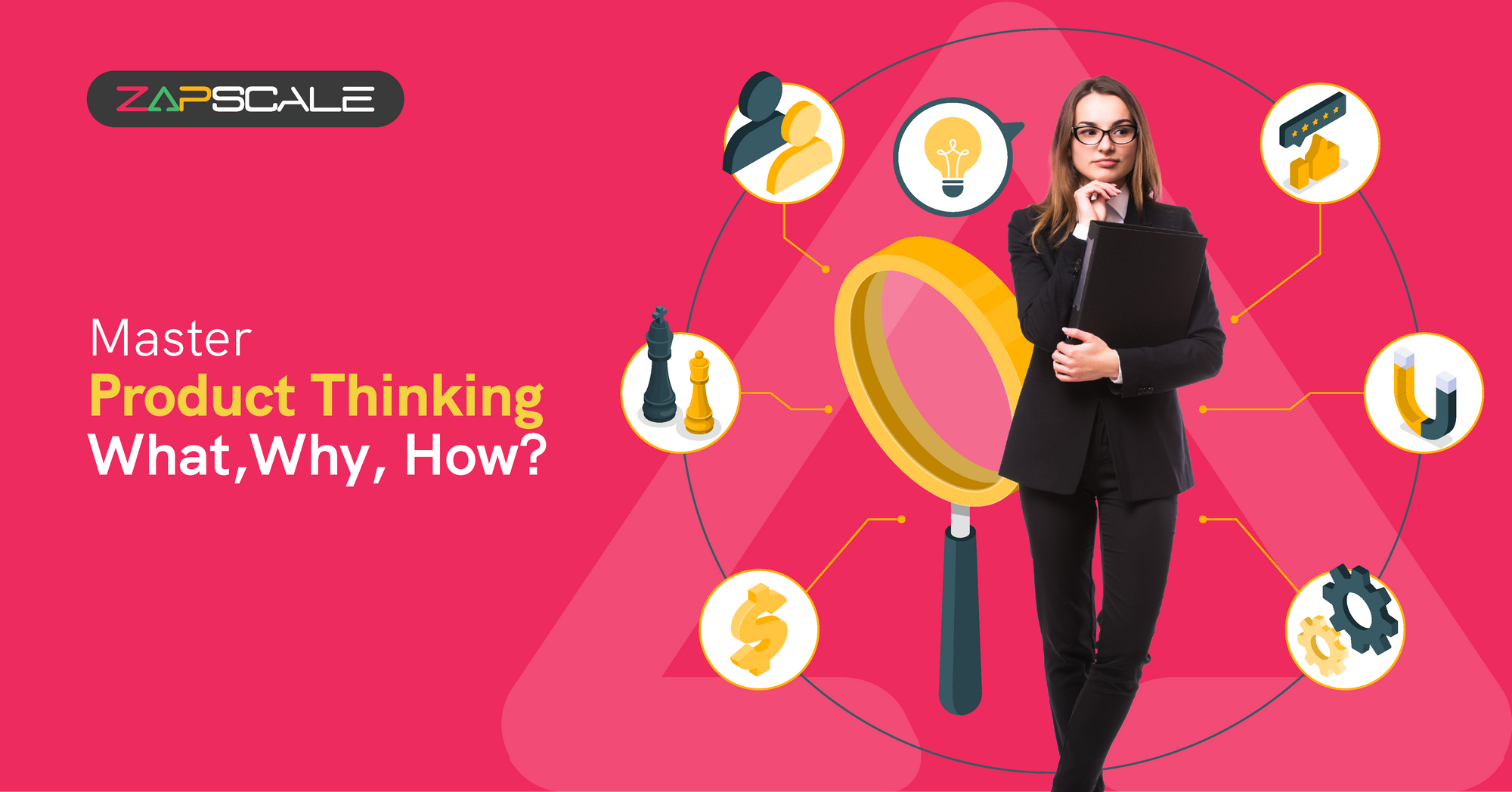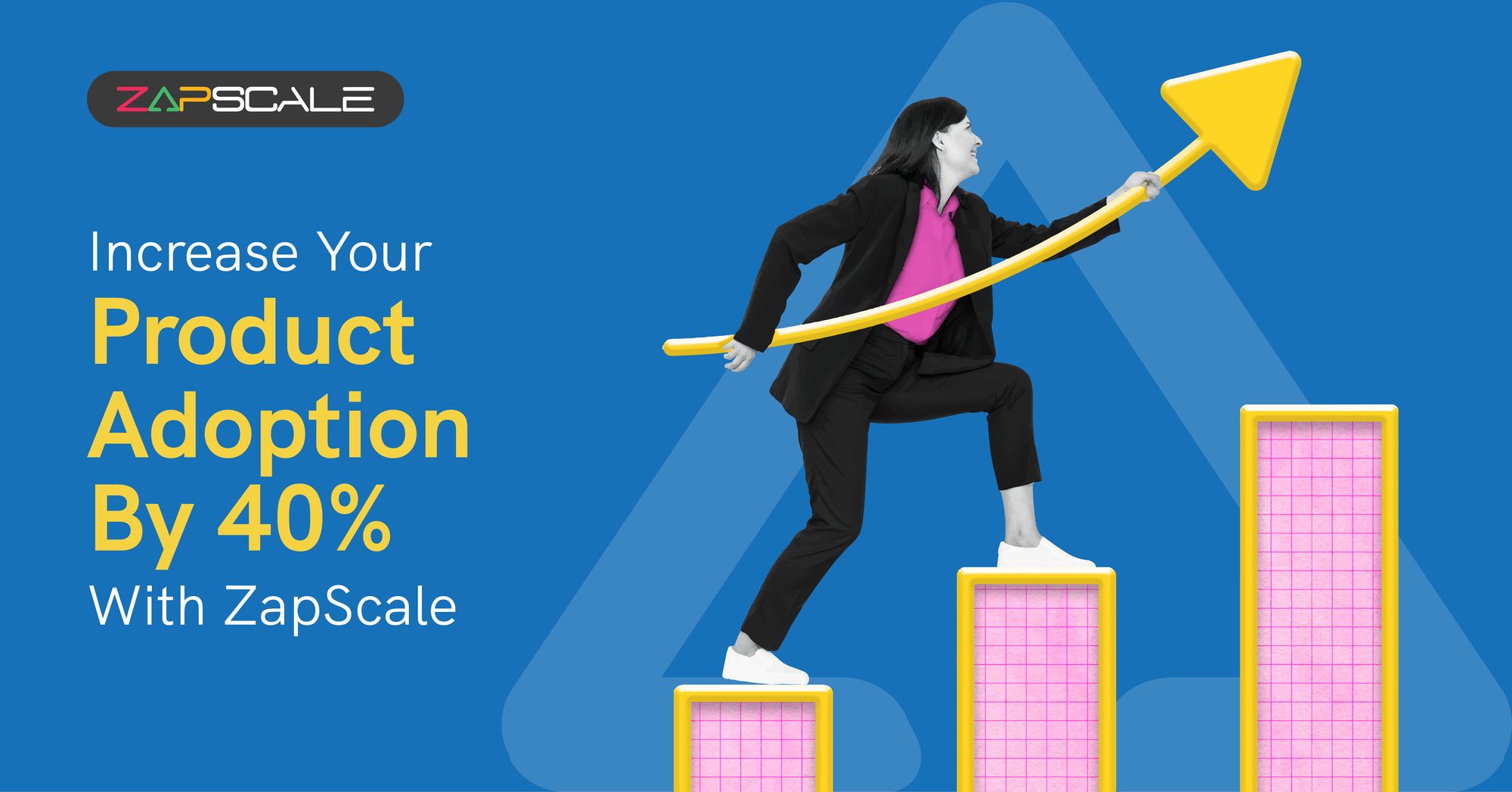CATEGORY > Comparison
CRMs vs Customer Success Platforms
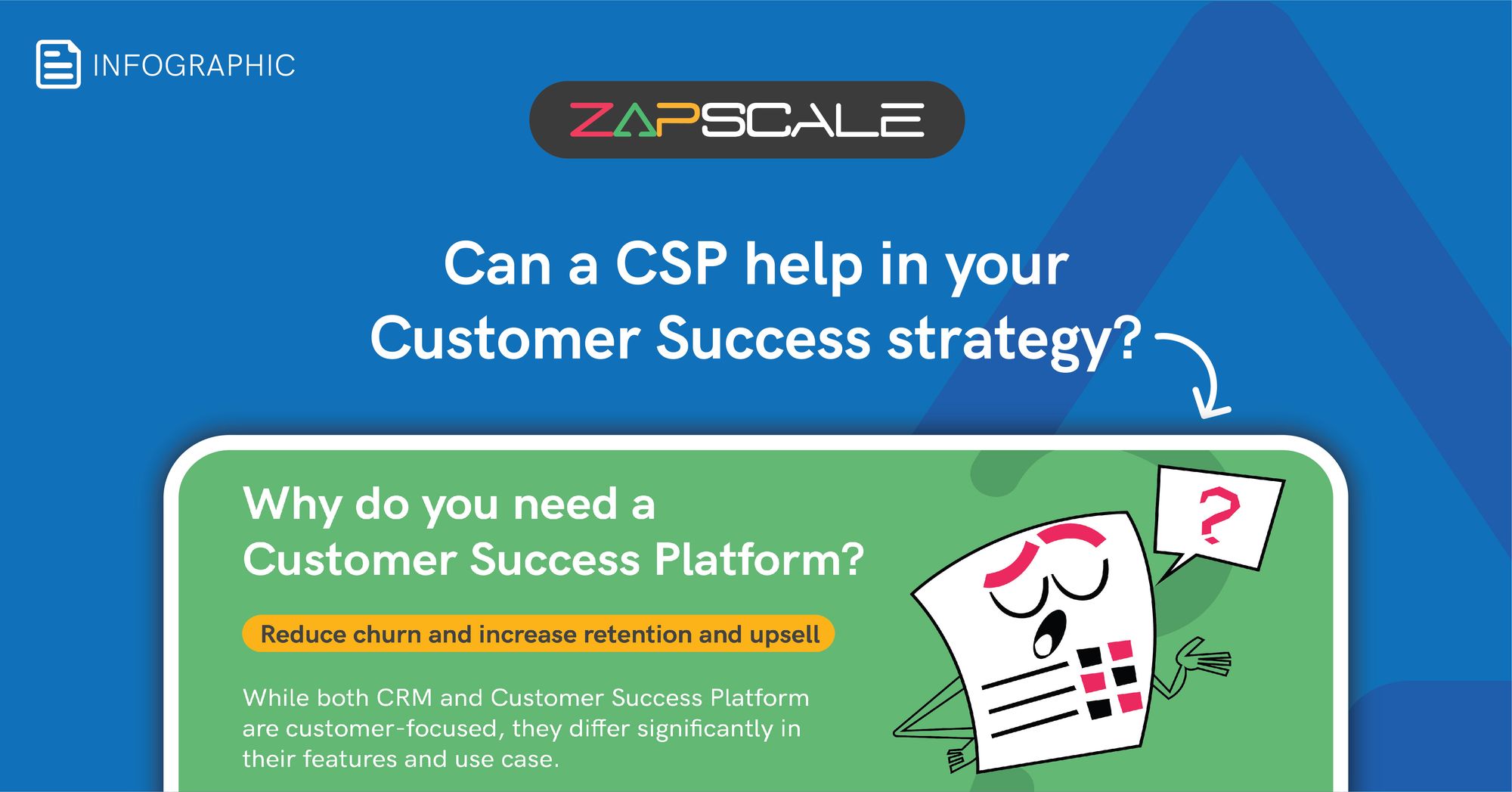
In the rapidly evolving software marketplace, the Software as a Service (SaaS) model has ushered in significant changes. It has significantly lowered the barriers to entry and exit for buyers, necessitating a fundamental shift in the way B2B software companies operate. Now, more than ever, Customer Success plays a pivotal role in ensuring the long-term success of your entire organization.
To achieve this, adopting a customer-focused approach to management isn't just beneficial; it's imperative.
Both CRM and CSP are customer-focused platforms and help drive sustainable business, but they differ significantly in their features and use cases. While a CRM can effectively automate the sales process to save time, and effort and improve sales performance, is it a suitable tool for customer success? Let’s find out below:
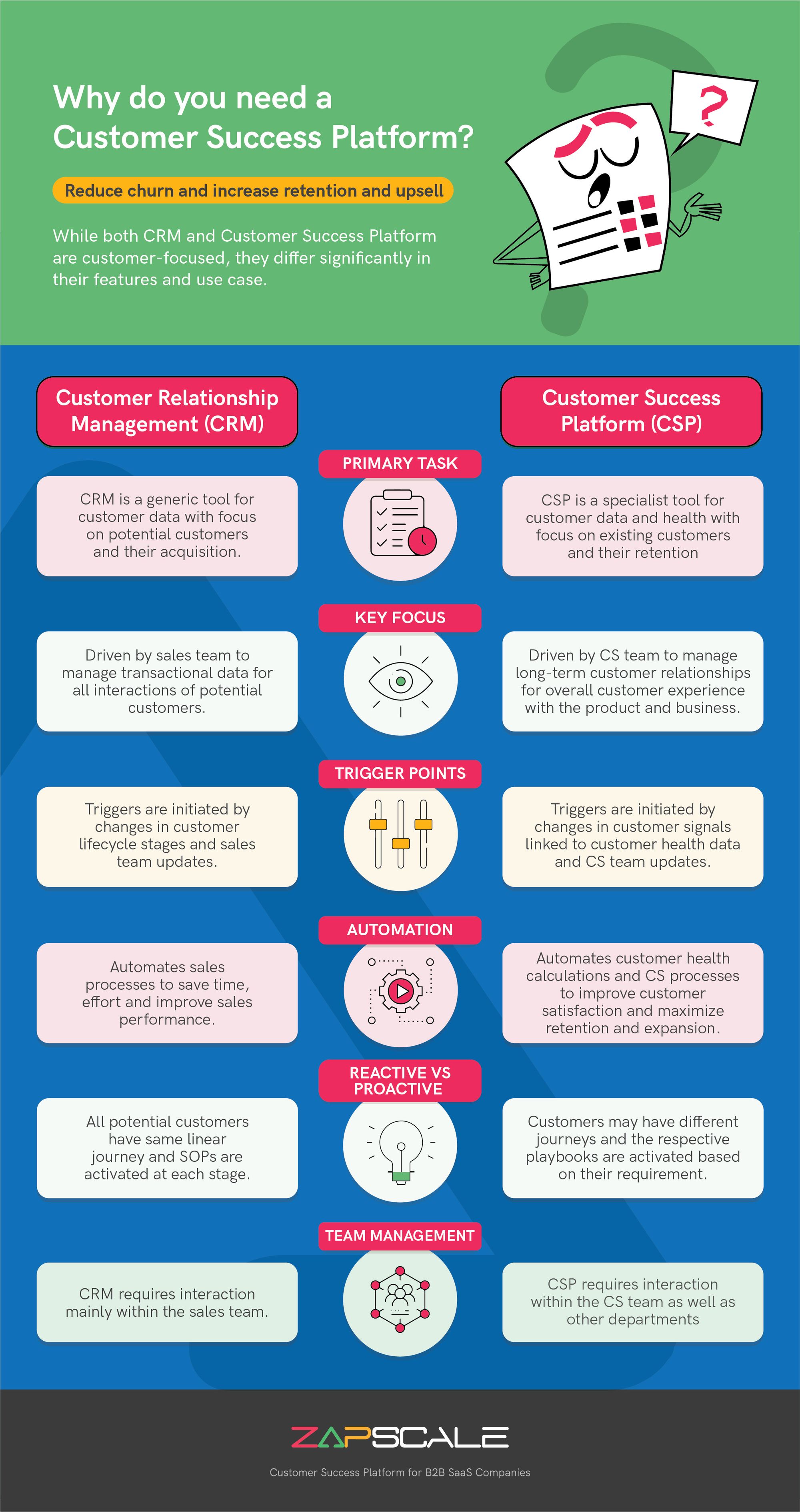
Challenges of Using Your CRM as a Customer Success Platform
While it is possible to employ a CRM for your Customer Success program, it is far from an ideal solution due to several key challenges:
1. Development and Management
CRMs struggle to support the workflows necessary for Customer Success teams. Extracting insights from product usage data and other sources poses a challenge, hindering the automation of processes like onboarding and renewals.
In contrast, Customer Success Platforms are purpose-built to provide these workflows without requiring technical expertise, thereby enhancing efficiency and scalability.
2. Reporting and Dashboards
CRMs may create reports and dashboards tailored to Customer Success, but this often comes at the expense of losing functionality. They lack seamless integration with product usage data, leading to the need for data exports and manual intervention to keep reports current.
Customer Success Platforms, leveraging a wealth of data, offer dynamic reporting
without significant human involvement, delivering actionable insights to CS teams.
3. Generating Actionable Insights
CRMs serve as data repositories but frequently fall short in presenting information when it's most critical.
Their manual nature tends to generate reactive responses rather than proactive ones. In contrast, Customer Success Platforms provide real-time insights, drawing from a continuous stream of customer data, and offering proactive solutions based on business intelligence and analytics.
4. Usability
CRMs excel in tasks oriented toward sales but often fail to meet the usability demands of Customer Success teams. Customer Success Platforms offer a holistic view of customer relationships, serving as a comprehensive workspace for CS teams, streamlining task management, and providing real-time alerts.
Your CRM and CS Platform Should Collaborate, Not Compete
In the end, CRMs and Customer Success Platforms are complementary. Although they deal with similar data sources, each adds distinct value. CRMs are valuable for opportunity management, while Customer Success Platforms excel in nurturing strong customer relationships post-purchase.
By integrating these tools, you empower your organization to prioritize Customer Success, equipping your team with the necessary tools, workflows, and insights to thrive. In the SaaS world, success extends beyond the initial transaction; it hinges on the long-term value you provide to your customers. Recognizing the importance of Customer Success Platforms alongside your CRM is essential.
Together, they position your customers for success, ensuring your organization thrives in the dynamic software marketplace.
4 CSP Use Cases That Aren’t Possible In A CRM
Here are 4 use cases for a customer success platform that is not possible in a standard CRM system:
1. Customer Health Scoring
CSPs provide advanced customer health scoring based on various metrics like product usage, engagement, support interactions, and satisfaction surveys. These scores help predict customer churn and identify at-risk accounts. While CRMs can track some customer interactions, they lack the specialized algorithms and data integration needed for customer health scoring.
2. Proactive Customer Engagement
CSPs enable proactive engagement by automating personalized communication based on customer behavior and lifecycle stages.
For example, they can automatically send check-ins, tips, or renewal reminders. CRMs focus more on reactive data entry and customer tracking rather than automating personalized engagement strategies.
3. Customer Journey Mapping
CSPs offer detailed customer journey mapping capabilities, allowing businesses to track and visualize the entire customer lifecycle. This includes onboarding adoption, renewal, and expansion stages, helping to identify touchpoints and optimize customer experience. CRMs generally don’t provide this level of detailed journey tracking and analytics.
4. Success Planning And Goal Tracking
CSPs provide tools for setting and tracking customer success plans and goals, including shared objectives, milestones, and KPIs.
These platforms allow customer success managers to collaborate with customers on specific outcomes, ensuring alignment and tracking progress over time.
CRMs generally lack the functionality to manage and measure detailed success plans and customer goals.
These use cases highlight how CSPs extend beyond the capabilities of traditional CRMs, offering specialized tools for nurturing and enhancing customer relationships.
Conclusion
A customer success platform tracks all interactions that a customer has with your business and your product, which makes it an ideal tool to drive and support your CS strategy. ZapScale is a customer success platform for B2B SaaS businesses to help them reduce churn, improve retention, and increase upsell.
Curious to know about ZapScale? Register for a free demo.
FAQs
1. What distinguishes a Customer Success Platform (CSP) from a CRM system?
While both CSPs and CRMs manage customer information, CSPs are specialized for driving customer success. They focus on monitoring customer health, automating customer engagement, mapping customer journeys, and tracking success plans. CRMs primarily manage sales and marketing processes, focusing on tracking leads, opportunities, and customer interactions. CSPs provide a more holistic view of the customer lifecycle, emphasizing retention and satisfaction rather than just transactions.
2. Can a CRM system be used as a Customer Success Platform?
Although CRMs can handle basic customer data and interactions, they lack many specialized features of a CSP. For example, CRMs don’t offer advanced customer health scoring, proactive engagement automation, detailed customer journey mapping, or success planning tools. While some CRMs may offer limited customer success functionalities through add-ons and integrations, they often do not provide the depth and specificity needed for comprehensive customer engagement management.
3. Why should a business invest in a CSP if they already have a CRM?
Investing in a CSP is valuable for businesses looking to deepen their customer relationships and improve retention. A CSP provides specialized tools for understanding and enhancing the customer experience, such as advanced health scoring, and proactive engagement strategies. It also offers detailed insights into the customer’s journey and enables the creation and monitoring of success plans tailored to each customer’s needs. These capabilities help businesses reduce churn, increase customer satisfaction, and drive long-term growth, which are areas where traditional CRMs may fall short.
ABOUT THE AUTHOR
Popular from Comparison
Quality Content,
Straight To Your Inbox!
Subscribe for the latest blogs, podcasts, webinars, and events!

Write a Blog
If you have experience in CS and
a flair for writing, we’d love to
feature you.
Write to us on
hello@zapscale.com
